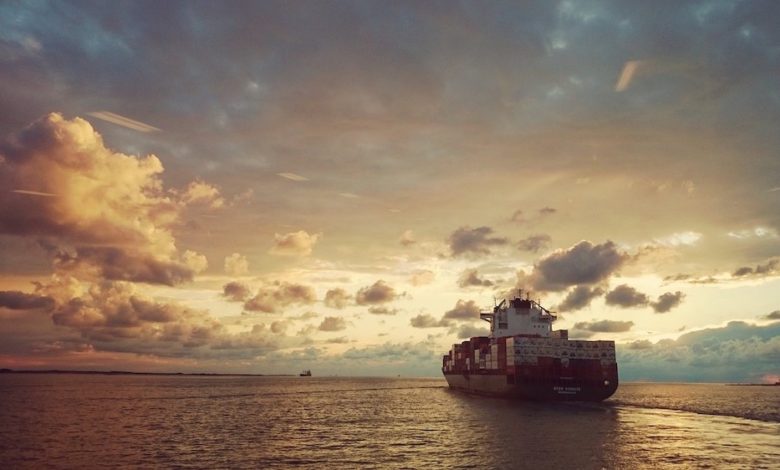Shipping reacts as EU splinters global environmental regulations

The European Commission on Wednesday proposed adding shipping to the bloc’s carbon market for the first time, a move international shipping has been bracing for for a number of years.
Under the EU plan, shipping would be added to the European Union Emissions Trading System (ETS) gradually from 2023 and phased in over a three-year period.
Shipowners will have to buy permits under the ETS when their ships pollute or else face possible bans from EU ports.
In addition to ships sailing within the EU, the proposals will also cover 50% of emissions from international voyages starting and ending in the bloc, a decision that has come in for criticism from the international shipping community.
We need urgent action but action must result in decarbonisation rather than a pure money grab
“The coverage of a share of the emissions from both incoming and outgoing voyages between the Union and third countries ensures the effectiveness of the EU ETS, notably by increasing the environmental impact of the measure compared to a geographical scope limited to voyages within the EU, while limiting the risk of evasive port calls and the risk of delocalisation of transhipment activities outside the Union,” the EC stated, explaining the rationale for including emissions from outside the continent – something that could now be matched when other nations and regions such as the US and China contemplate adding shipping into their own emission trading schemes.
Commenting on yesterday’s big environmental news, Claes Berglund, president of the European Community Shipowners’ Associations (ECSA), lamented the fact that the International Maritime Organization (IMO) had not been able to lead shipping to an international green solution.
“Even though we would have preferred an international solution for shipping, we welcome the increased climate ambition of the EU and we recognise that shipping should contribute its fair share to address the climate crisis, at EU level as well,” Berglund said.
ECSA is advocating for a dedicated fund to be set up under the EU ETS to stabilise the carbon price. The association stressed generated revenues should support the sector’s energy transition.
The international shipping reaction to the unilateral move was less diplomatic.
Guy Platten, secretary general of the International Chamber of Shipping, suggested the EU move could be a “pure money grab”.
“Other than as an ideological revenue raising exercise, which will greatly upset the EU’s trading partners, it’s difficult to see what extending the EU ETS to shipping will achieve towards reducing CO2, particularly as the proposal only covers about 7.5% of shipping’s global emissions. This could seriously put back climate negotiations for the remaining 92.5% of shipping emissions,” Platten argued.
“We know that non-EU states like Japan have already expressed concern over this diplomatic overreach and imposition of a unilateral and extra-territorial tax on trade. It cannot be equitable for non-EU shipping companies to be forced to pay billions of euros to support EU economic recovery plans, particularly under a scheme that undermines CO2 negotiations,” Platten continued, repeating his association’s preference for a global fuel levy with greater focus on investing in research and development of decarbonisation technologies.
Applauding yesterday’s European announcement was Faig Abbasov, shipping programme director at NGO Transport & Environment (T&E), who said: “The EU is finally making shipping polluters pay. Now lawmakers need to defend a carbon market that covers extra-European voyages, so that the biggest shipping companies are not let off the hook. The ETS revenues should be reinvested in deploying zero-emission vessels, port charging, and hydrogen refuelling infrastructure.”

I can understand owners being a bit miffed but if they had been proactive this would not have happened.
“a “pure money grab”.” That is what the Exxon/Peabody/Koch axis have said about every attempt to reduce GHG whilst funding those who denied science. Shame on you ICS.
The last sentence in T&E’s sound bite “The ETS revenues should be reinvested in deploying zero-emission vessels, port charging, and hydrogen refuelling infrastructure.”
If this sentence had added “… for the climate most vulnerable”, then there might have been something in this EU move that could be labelled a step to an equitable transition. But as it stands this is an MBM that disproportionately benefits the most developed economies,whilst the best the rest of us can expect is some trickle down development aid or technical assistance programing from Europe’s expanded coffers. Hardly polluter pays. And certainly not morally defensible as contributing to an equitable global transition. Be interesting to analyse any internal EU impact assessment on this measure, and in particular any consideration of disproportionate negative impact.
But certainly leaves IMO with a clear choice. An EU ETS with promised large subsidization of next generation European shipping technology or a universal mandatory GHG levy on all international shipping with an equitable disbursement of the revenue generated to ensure an equitable transition for all members of the international community.
The favour the EU has done us all is to get rid of any further discussion of MBM-lites such as the $2 R&D fund. No more room left for low ambition measures.
Good points.